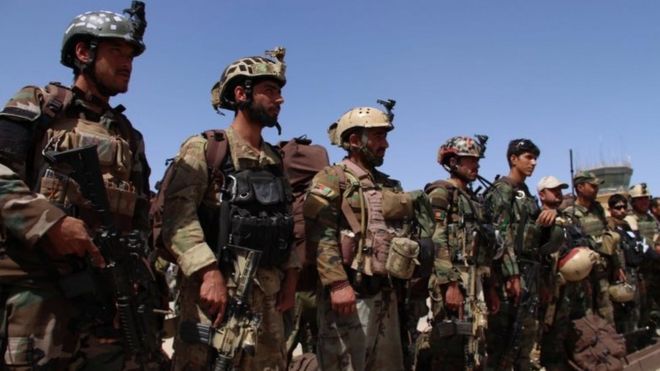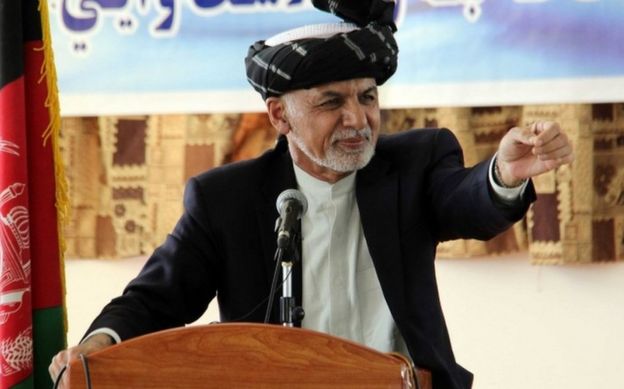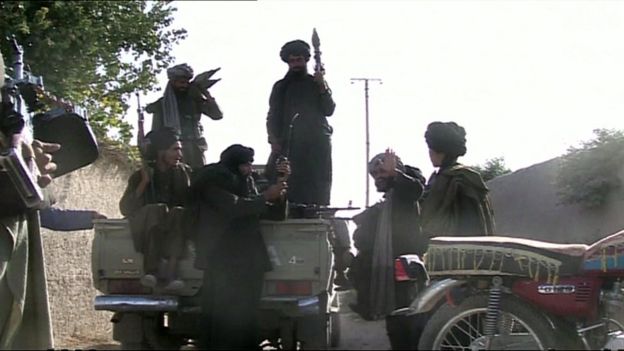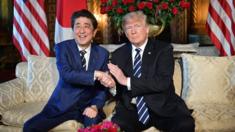 EPA
EPA
The Afghan government has announced a temporary ceasefire with the Taliban but says fighting with other militants will continue.
President Ashraf Ghani said the week-long ceasefire would coincide with the end of the Ramadan fasting month, Eid. The Taliban have yet to respond.
Last week they denied they were in secret talks with Afghan officials.
Tens of thousands of Afghans have been killed since US-led troops drove the Taliban from power in 2001.
Previous offers of peace talks and ceasefires have come to nothing.
Earlier this week, a prominent gathering of religious clerics issued a fatwa condemning militant violence as un-Islamic - and were themselves targeted in a suicide attack claimed by the Islamic State (IS) group.
Mr Ghani said his government supported the clerics' ruling and that Afghan people wanted the conflict settled peacefully. The ceasefire is due to come into effect next week.
 EPA
EPA
He made clear Afghan security forces "will only stop offensive manoeuvres against Afghan armed Taliban and will continue to target Daesh [IS] and other foreign-backed terrorist organisations and their affiliates".
"This ceasefire is an opportunity for Taliban to introspect that their violent campaign is not winning them hearts and minds but further alienating the Afghan people from their cause," he said.
In February Mr Ghani offered peace talks "without preconditions" and recognition of the Taliban as a legitimate political group if they respected the rule of law.
The move accompanied a more aggressive US military approach, unveiled last August, aimed at forcing the Taliban to negotiate.
However there has been no let-up in the violence. Recent months have seen a wave of deadly militant attacks and clashes with security forces around the country.
Last week the US commander in Afghanistan, Gen John Nicholson, said senior Taliban officials have been in secret negotiations with Afghan officials about a possible ceasefire.

"A lot of the diplomatic activity and dialogue is occurring off the stage, and it's occurring at multiple levels," he said.
The Taliban rejected his comments as a "false claim".
- Can Afghan military turn the tide in Taliban fight?
- Four days behind the Taliban front line
- Who are the Taliban?
Foreign combat forces withdrew from Afghanistan in 2014. Since then the Taliban have extended their influence over swathes of the country, and areas previously taken from them are now back under their control.
The Afghan army has suffered mounting casualties, although the Taliban are also reported to have been hit hard by US air strikes.
A BBC investigation published in January found the militants now have an active presence in 70% of Afghanistan.
Asia
Abe in last-minute US trip before summit
- 7 June 2018
- Asia
The three things North Korea wants
- 7 June 2018
- Asia
Plane bomb threat man jailed in Australia
- 7 June 2018
- Australia













No comments:
Post a Comment